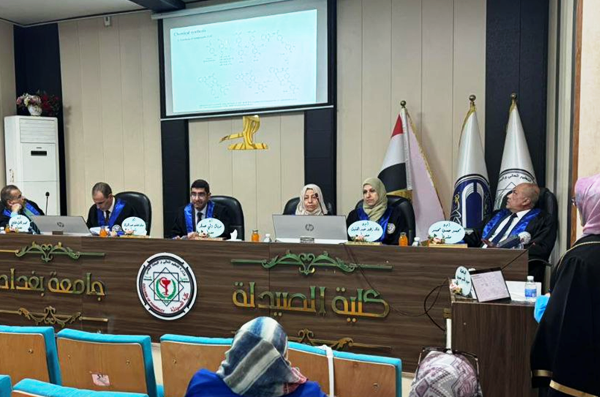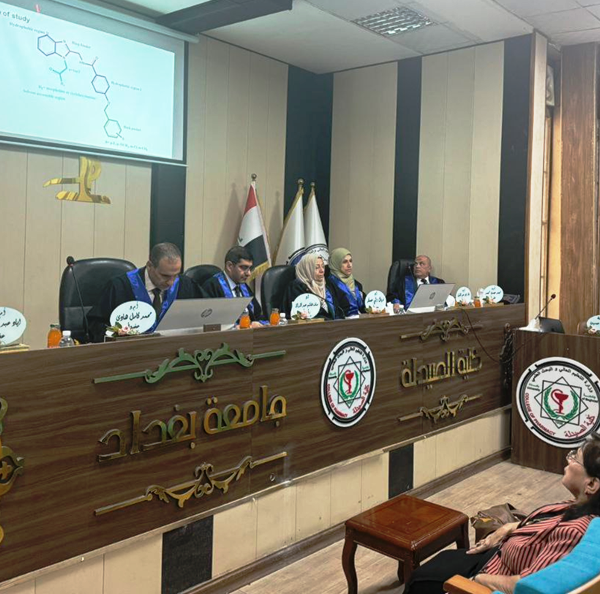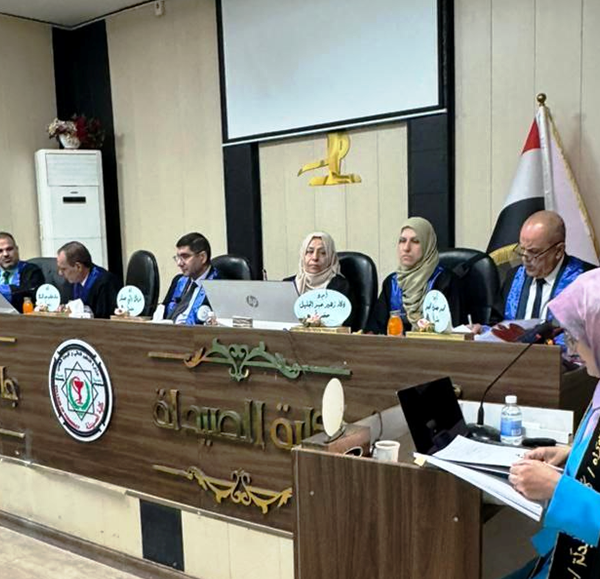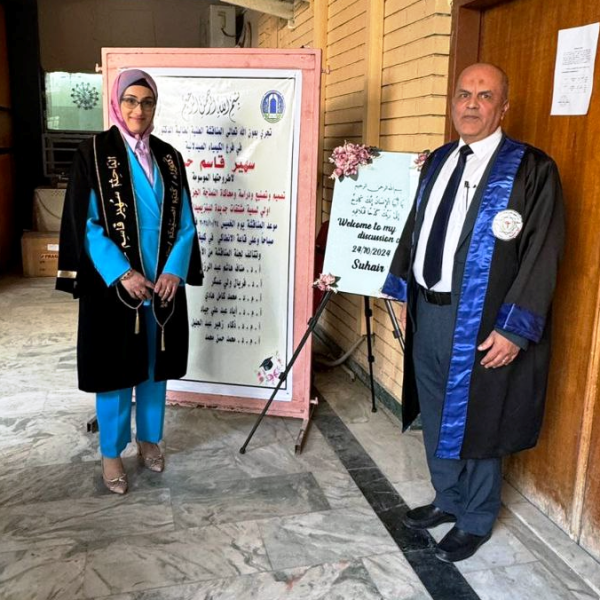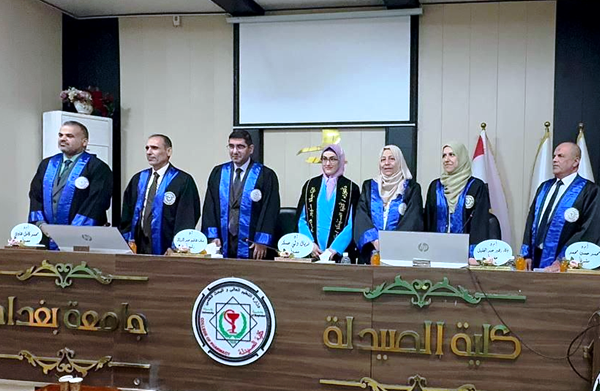The College of Pharmacy discussed the PhD dissertation entitled “Design, synthesis, in silico study, and preliminary cytotoxic evaluation of new 2-(Amino methyl) Benzimidazole derivatives as possible tyrosine kinase inhibitors” by the student Suhair Qasim Hussein and the supervisor, Associate Professor Dr. Mohammed Hasan Mohammed, at the Pharmaceutical Chemistry Department. The study aimed to design and synthesize new 2-(aminomethyl) benzimidazole derivatives to be evaluated as anticancer agents. The study included the design of different 2-(aminomethyl)benzimidazole derivatives, which were docked virtually and then were synthesized, characterized and studied for the preliminary structure-activity relationship and evaluated for their cytotoxic activities against two cancer cell lines (breast, T46D, and lung cancer, A549) as well as Vero normal cells, using gefitinib as a reference standard. Then molecular dynamic simulation and ADME study for the most cytotoxic compounds were done. The results showed that all compounds were synthesized successfully and with excellent purity, according to their physical properties and advanced analytical spectra. Regarding the molecular modeling study, the results were promising, showing good energy binding scores with good interaction between the designed compounds and both (EGFR,3POZ) and (HER2,3RCD) ATP-binding domain. In the cytotoxicity study on cancer cells, the results obtained with breast cancer cell line (T47D) were better than lung cancer cell line (A549). It is worth noting that all the synthesized compounds had no toxicity against normal cells. Lung cancer cells exhibited high resistance to all compounds except compound 4f, which showed an activity against this cell line with IC50 of 166.1 µM. Compounds 4g and 2g were highly active against breast cancer cells with IC50 of 18.05 and 18.9 µM, respectively, compared to the positive control gefitinib, which had an IC50 of 22.05 µM. Molecular dynamic simulation study confirmed the activity of these compounds against one or two selected proteins. The study recommended that the compounds (2g,4g and 4f) could be considered as good candidates for further pharmacological tests like cell cycle analysis, apoptotic detection and enzyme assay.



